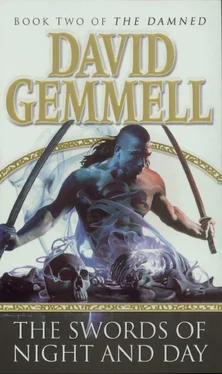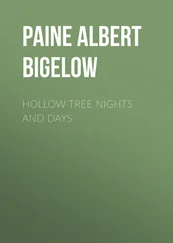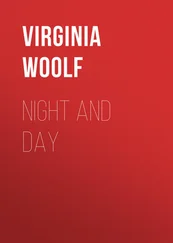The borders were closed, and though the inhabitants paid lip service to the Eternal, sending taxes and maintaining her laws, the old ways remained paramount. Honour, nobility of spirit, courage and a love of the homeland were the first virtues instilled in the young. Lessons in Drenai history followed, to make the young citizens aware of the great ones in whose footsteps they would be expected to walk. Karnak the One-Eyed, who had held Dros Purdol against impossible odds; Egel, the first Earl of Bronze, builder of the great fortresses. Adaran, who had won the War of the Twins, and Banalion, the White Wolf, who had fought his way back from the disasters of the last Ventrian wars, and helped to rebuild a shattered empire. There were stories of villains too, not all of them power-hungry foreigners seeking to destroy the greatness of the Drenai. There was Waylander the assassin, who had sold his soul to the enemy and murdered the Drenai king, and Lascarin, the thief who had stolen the legendary Armour of Bronze.
Stories of men like these were told to stem the arrogance that might flower instead of pride in a Drenai youngster’s heart.
Alahir smiled. The tales of many heroes had been imparted to him, but few had touched his heart as had the tale of Druss the Legend.
He sighed and rode on.
The day was a bright one. The heavy clouds of the night before had moved on, and the air was clean and crisp.
They scouted for several hours, then Alahir headed to a campsite they had used before, and the men dismounted, picketed the horses and prepared cook fires for the midday meal. Alahir was happy to be out of the saddle. His favourite horse, Napalas, a speckled grey, had thrown a shoe, and he was riding a mount loaned to him by his aide, Bagalan. The beast was skittish. If Alahir’s cloak flared in the breeze the horse would rear and try to bolt. Several times he had glanced at his aide, and the youngster was trying hard not to chuckle.
‘It is the last time I borrow a horse of yours,’ he said, as they dismounted.
‘He has great speed,’ said the dark-haired youngster, trying to keep the smile from his face. ‘He’s just a little nervous.’ The boy was a practical joker of some renown, and Alahir only had himself to blame for trusting the lad. ‘Anyway, you always said you could ride anything you could throw a saddle on.’
Alahir untied the chin straps of his helm and lifted it clear. Then he brushed his hand over the white horsehair plume, knocking the dust clear. Removing his sword belt he pushed back his mail hood, sat down on the ground, and stretched out.
‘Are you tired, uncle?’ asked Bagalan, sitting alongside him.
‘Don’t call me uncle.’
‘Why is it you are always so scratchy after a night with the whores?’
‘I am not scratchy. And the whores were. . were fine.’
‘The one you went off with had a face like a goat.’
Alahir sighed and sat up. ‘I was drunk. I do not remember what she looked like. In fact I don’t care what she looked like. My sister promised me you would be a fine aide. She obviously has your sense of humour. Now go and get me some stew.’ The young man chuckled and moved off towards one of the cook fires. He was right. Alahir was scratchy, and the camp whores were ugly. But the two facts were not connected.
His sergeant, a twenty-year veteran named Gilden, approached him. ‘You want some time alone?’ he asked. Alahir looked up into the man’s thin, bearded face. Two white scars ran through the beard from the right cheekbone down to the chin, permanent reminders of a clash with renegade Jiamads three years before. Gilden also had scars on his chest, arms and legs. But none on his back. Not a man to run in the face of an enemy.
‘No, sit. Your company is always welcome.’
Gilden removed his sword and sat on the ground. ‘The boy is all right, captain. Just a little brash. You were much the same ten years ago.’
‘Ten years ago I thought I was saving the homeland. I believed I could change the world.’
‘You were eighteen. You’re supposed to feel like that at eighteen.’
‘You felt like that?’
Gilden spread his hands. ‘Too long ago to remember. I don’t like what’s happening now, though. Bad feel to it.’
Alahir nodded. There was no need for elucidation. Agrias had begun talking about the need to protect the port areas around Siccus against enemy invasion from the sea. The whole point of serving the man was to prevent the war from reaching the homeland, to protect the borders and keep Jiamads out.
‘The council will argue against the plan,’ said Alahir at last.
‘Old men. Once strong, now fragile. Lukan argued against Agrias. He was the best of them. True Drenai. Heart and soul. Deserved better than a knife in the back for his efforts.’
‘Shadowmen serving the Eternal. Nothing to do with Agrias,’ replied Alahir doubtfully.
‘Maybe. Even so there is no-one to stand against him now.’ Gilden swore, which was rare. Alahir glanced at him.
‘Problems for another day,’ said Alahir.
‘Never did study much, save for Drenai history,’ said Gilden. ‘But I know that civilizations rise and fall and die away. The Sathuli used to inhabit this region. Where are they now? Dust. All but forgotten. The Nadir hordes swept across these lands and butchered them all. And where are the Nadir? Dust. All my life I’ve fought to keep the Drenai alive. Yet we are dying, Alahir. Slowly. If not Agrias, then it will be the Eternal. A pox on them both!’
‘No argument there. I agree the future looks bleak,’ he said, seeking to find something hopeful to say to the man, ‘but it has been bleak before, and we are still here. Think of Dros Delnoch, when Ulric’s Nadir were before it. Hundreds of thousands of warriors, and only a handful of soldiers and volunteer farmers. They held, though, and the Drenai lived on.’
‘They had Druss.’
‘And we have you and me — and five thousand like us. If we have to go down, Gil, we’ll carve a legend of our own.’
‘Aye, that we will.’ Alahir saw the man relax. Gilden suddenly smiled. ‘That was the ugliest whore I’ve ever seen. She had a face like a horse.’
‘Goat,’ corrected Alahir.
‘Ah, I see,’ said Gilden. ‘I’d forgotten you’re from farming country. Sing love songs about goats up there.’
‘Only the pretty ones,’ replied Alahir.
The long ride back to Petar helped clear Decado’s head. The pain finally faded away, and the freedom from it was almost as blissful as a kiss from the Eternal.
There were people moving through the streets of the town, and a semblance of normality had returned.
There were no Jiamads in sight, but he saw several groups of soldiers walking among the citizenry.
At Landis Kan’s palace he dismounted, handed the reins of the horse to a servant and walked up the steps to the great doors. Once inside he saw two female servants, carrying a heavy rug. They were young women, and quite pretty. One of them glanced up. He smiled. The girl cried out, dropped her end of the rug and fled. The second girl also let go of the rug, and backed away, her eyes wide, her face pale. ‘I am not going to hurt you,’ said Decado. The girl turned, gathered up her long skirt and ran after her friend.
Decado looked down at the embroidered rug, which had partially unrolled. It was stained with dried blood.
He wandered up to his rooms, wondering how long it would be before the Eternal returned from the high country. Now that his head was clearer he found it strange she should have been there at all. It was rare for her to travel without her guards. And she had been dressed strangely. In disguise, he guessed.
The outfit suited her, the leather leggings emphasizing the sleekness of her figure. Once in his rooms he removed his boots, and looked for some wine. He needed a drink, but there was nothing here, and no servants were close by. Even if they were, he realized, they would run from him. Tugging on his boots again, he walked to the door. At that moment there came a tap at the wood frame outside.
Читать дальше












